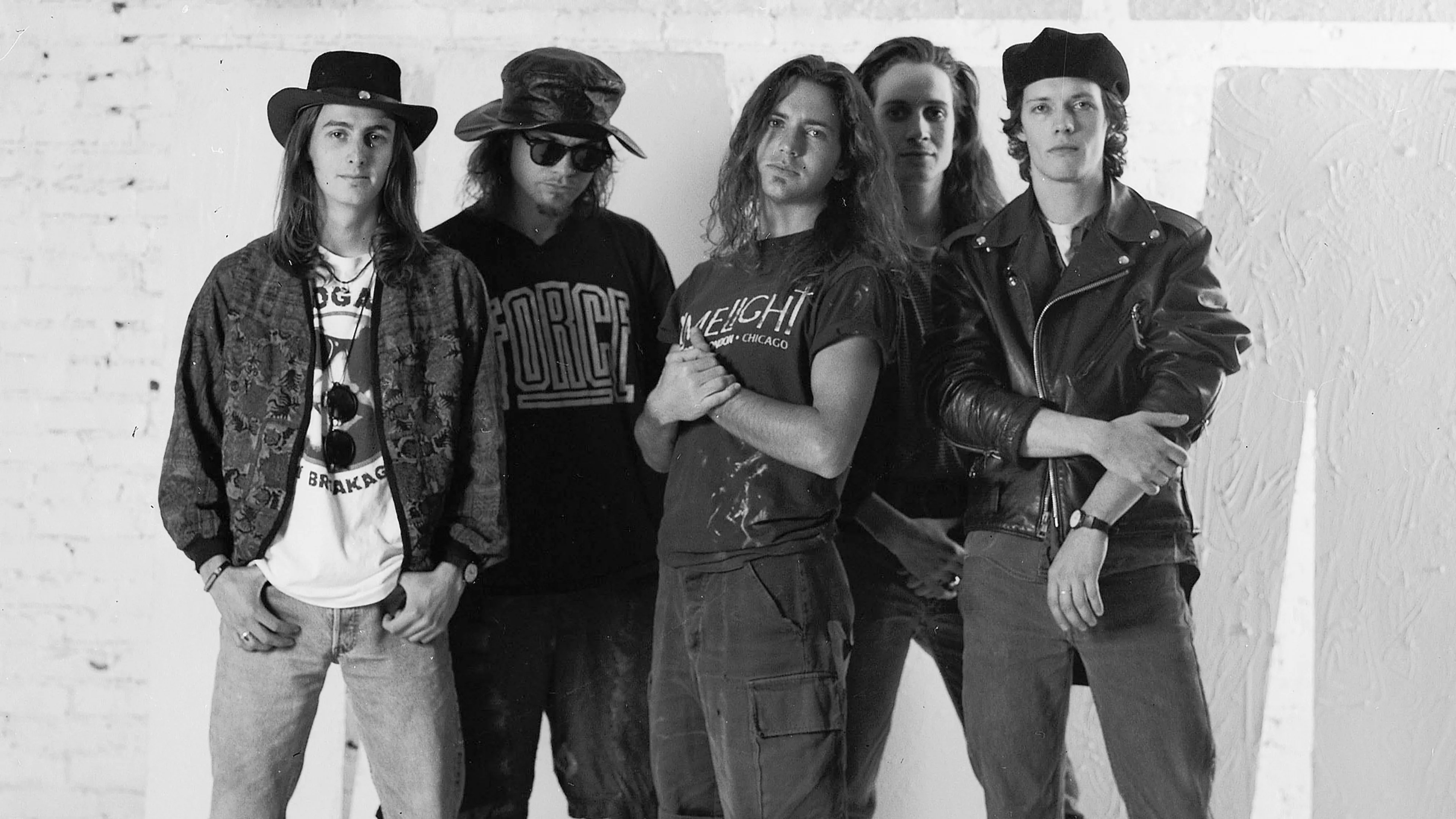Compared to the vast majority of their platinum-rated rock contemporaries, Pearl Jam’s back catalogue does not easily stack into a defined hierarchy of hit singles, ‘underrated’ fan-favourites and forgotten album tracks. They have always been an outfit interested in everything they do. Their first three LPs, of course – spanning the pomp of the grunge scene, and full of its revolutionary excitement – still hold a special place in listeners’ hearts, but rather than trying to cling to past glories or fading into irrelevance, their eight albums (and countless other releases) since have solidified one of the most innovative, important reputations in all of rock.
Perhaps the tribulations and inspirations of their coming-together prepared them for that. Guitarist Stone Gossard and bassist Jeff Ament joined proto-grungers Green River in the mid-’80s, before forming Mother Love Bone with vocalist Andrew Wood towards the decade’s close. Andrew’s death from a heroin overdose in early 1990 rattled bonds and drove Stone’s writing into darker, heavier territory, but the introduction of second six-stringer Mike McCready, and an inspired response to their five-track demo from Illinois-born, San Diego-based singer Eddie Vedder (who’d written lyrics for Alive, Once and Footsteps while out surfing) saw the band take shape. Within a year, 13x platinum-selling debut Ten was stacked high on record store shelves.
